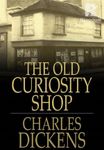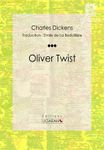88 books
-
1. Charles Dickens Best Novels
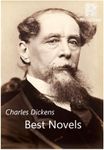
Charles John Huffam Dickens FRSA (7 February 1812 – 9 June 1870) was an English writer and social critic. He created some of the world's best-known fictional characters and is regarded by many as the greatest novelist of the Victorian era. His works enjoyed unprecedented popularity during his lifetime, and by the 20th century, critics and scholars had recognised him as a literary genius. His novels and short stories are still widely read today. In this book, we have collected Dicken's nine best novels: Great Expectations Oliver Twist Nicholas Nickleby A Christmas Carol David Copperfield Bleak House Little Dorrit A Tale of Two Cities The Pickwick Papers We consider them to be the best because of the great success they've had. A well-structured, easy-to-read book, suitable for any e-reader, tablet or computer. The reader will go from one novel to another one as quick as possible. In this collection, we have also included a detailed biography of Charles Dickens.
-
2. Charles Dickens Six Pack
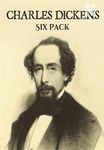
Charles Dickens Six Pack is a two thousand page plus anthology presenting six of the best Dickens novels along with image galleries showcasing Dickens portraits, first edition covers and original illustrations. Charles Dickens Six Pack The Old Curiosity Shop by Charles Dickens. David Copperfield by Charles Dickens. Bleak House by Charles Dickens. A Tale of Two Cities by Charles Dickens. Great Expectations by Charles Dickens. The Mystery of Edwin Drood by Charles Dickens.
-
5. The Pickwick Papers
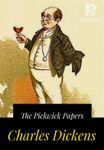
The Pickwick Papers by Charles Dickens. Few first novels have created as much popular excitement as The Pickwick Papers - a comic masterpiece that catapulted its twenty-four-year-old author to immediate fame. Readers were captivated by the adventures of the poet Snodgrass, the lover Tupman, the sportsman Winkle and, above all, by that quintessentially English Quixote, Mr Pickwick, and his cockney Sancho Panza, Sam Weller. From the hallowed turf of Dingley Dell Cricket Club to the unholy fracas of the Eatanswill election, via the Fleet debtors' prison, characters and incidents spring to life from Dickens's pen, to form an enduringly popular work of ebullient humour and literary invention.
-
8. Great Expectations
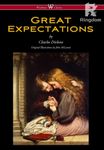
With the original Illustrations by John McLenan 1860. GREAT EXPECTATIONS is Charles Dickens" thirteenth novel and his penultimate completed novel; a bildungsroman which depicts the personal growth and personal development of an orphan nicknamed Pip. It is Dickens"s second novel, after David Copperfield, to be fully narrated in the first person. The novel was first published as a serial in Dickens"s weekly periodical All the Year Round, from 1 December 1860 to August 1861. In October 1861, Chapman and Hall published the novel in three volumes. It is set among marshes in Kent, and in London, in the early to mid-1800s, and contains some of Dickens" most memorable scenes, including the opening, in a graveyard, where the young Pip is accosted by the escaped convict, Abel Magwitch. GREAT EXPECTATIONS is full of extreme imagery -poverty; prison ships and chains, and fights to the death-and has a colorful cast of characters who have entered popular culture. Dickens"s themes include wealth and poverty, love and rejection, and the eventual triumph of good over evil. GREAT EXPECTATIONS is popular both with readers and literary critics, and has been translated into many languages, and adapted numerous times into various media. Upon its release, the novel received near universal acclaim. Thomas Carlyle spoke disparagingly of "all that Pip"s nonsense". Later, George Bernard Shaw praised the novel, as "All of one piece and consistently truthful." During the serial publication, Dickens was pleased with public response to GREAT EXPECTATIONS and its sales; when the plot first formed in his mind, he called it "a very fine, new and grotesque idea."
-
10. Great Expectations

Raised in squalor in the marsh country of Kent, the orphan Pip is taken under the wing of the eccentric and reclusive Miss Havisham—only to blindly give his heart to the dowager’s beautiful but ice-cold adopted daughter, Estella. Even as a mysterious benefactor helps to shape Pip’s life into one of fortune, success, and self-discovery, the unspeakable secrets of his unrequited love continue to haunt him—and promise to change his life once again. With its indelible cast of characters, immersive epic narrative, and startling dramatic twists, Charles Dickens’s powerful classic continues to enthrall generations of new readers.
-
11. The Adventures of Oliver Twist
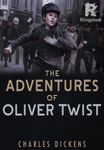
Set in Victorian London, this is a tale of a spirited young innocent's unwilling but inevitable recruitment into a scabrous gang of thieves. Masterminded by the loathsome Fagin, the underworld crew features some of Dickens' most memorable characters, including the vicious Bill Sikes, gentle Nancy, and the juvenile pickpocket known as the Artful Dodger.
-
12. The Pickwick Papers

The first ray of light which illumines the gloom, and converts into a dazzling brilliancy that obscurity in which the earlier history of the public career of the immortal Pickwick would appear to be involved, is derived from the perusal of the following entry in the Transactions of the Pickwick Club, which the editor of these papers feels the highest pleasure in laying before his readers, as a proof of the careful attention, indefatigable assiduity, and nice discrimination, with which his search among the multifarious documents confided to him has been conducted. ‘May 12, 1827. Joseph Smiggers, Esq., P.V.P.M.P.C. [Perpetual Vice-President—Member Pickwick Club], presiding. The following resolutions unanimously agreed to:— ‘That this Association has heard read, with feelings of unmingled satisfaction, and unqualified approval, the paper communicated by Samuel Pickwick, Esq., G.C.M.P.C. [General Chairman—Member Pickwick Club], entitled “Speculations on the Source of the Hampstead Ponds, with some Observations on the Theory of Tittlebats;” and that this Association does hereby return its warmest thanks to the said Samuel Pickwick, Esq., G.C.M.P.C., for the same. ‘That while this Association is deeply sensible of the advantages which must accrue to the cause of science, from the production to which they have just adverted—no less than from the unwearied researches of Samuel Pickwick, Esq., G.C.M.P.C., in Hornsey, Highgate, Brixton, and Camberwell—they cannot but entertain a lively sense of the inestimable benefits which must inevitably result from carrying the speculations of that learned man into a wider field, from extending his travels, and, consequently, enlarging his sphere of observation, to the advancement of knowledge, and the diffusion of learning.
-
14. Little Dorrit
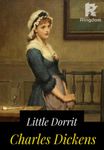
Little Dorrit by Charles Dickens is a classic tale of imprisonment, both literal and metaphorical, while Dickens' working title for the novel, Nobody's Fault, highlights its concern with personal responsibility in private and public life. Dickens' childhood experiences inform the vivid scenes in Marshalsea debtor's prison, while his adult perceptions of governmental failures shape his satirical picture of the Circumlocution Office. The novel's range of characters - the honest, the crooked, the selfish and the self-denying - offers a portrait of society about whose values Dickens had profound doubts. Little Dorrit is indisputably one of Dickens' finest works, written at the height of his powers. George Bernard Shaw called it ‘a masterpiece among masterpieces’, a vedict shared by the novel's many admirers.
-
15. L'Abîme

Après avoir abandonné son enfant à sa naissance à l'Hospice des Enfants Trouvés, une jeune mère prise de remords le récupère à l'âge de douze ans. Walter Wilding connaît alors une existence heureuse près de sa mère et devient marchand de vins. Malheureusement, lorsqu'il atteint l'âge de vingt cinq ans, sa mère décède?
-
16. Great Expectations

Great Expectations is Charles Dickens"s thirteenth novel and his second novel, after David Copperfield, to be fully narrated in the first person. The story traces the growth of Philip Pirrip, called Pip, from a boy of shallow dreams to a man of depth and character. Great Expectations has been filmed many times and the novel is regarded by many as Dickens" greatest achievement.
-
17. Oliver Twist

Among other public buildings in a certain town, which for many reasons it will be prudent to refrain from mentioning, and to which I will assign no fictitious name, there is one anciently common to most towns, great or small: to wit, a workhouse; and in this workhouse was born; on a day and date which I need not trouble myself to repeat, inasmuch as it can be of no possible consequence to the reader, in this stage of the business at all events; the item of mortality whose name is prefixed to the head of this chapter. For a long time after it was ushered into this world of sorrow and trouble, by the parish surgeon, it remained a matter of considerable doubt whether the child would survive to bear any name at all; in which case it is somewhat more than probable that these memoirs would never have appeared; or, if they had, that being comprised within a couple of pages, they would have possessed the inestimable merit of being the most concise and faithful specimen of biography, extant in the literature of any age or country.
-
18. Hard Times

Considered Dickens" harshest indictment of mid-19th-century industrial practices and their dehumanizing effects, Hard Times offers a fascinating tapestry of Victorian life, filled with the richness of detail, brilliant characterization, and passionate social concern that typify the novelist"s finest creations.
-
19. The Old Curiosity Shop

The Old Curiosity Shop follows the life of Nell Trent and her grandfather, both residents of The Old Curiosity Shop in London. The Old Curiosity Shop was one of two novels (the other being Barnaby Rudge) which Dickens published along with short stories in his weekly serial Master Humphrey"s Clock, which lasted from 1840 to 1841. It was so popular that New York readers stormed the wharf when the ship bearing the final instalment arrived in 1841, shouting to arriving sailors (who might have already read the final chapters in the United Kingdom), ‘Is Little Nell alive?’
-
20. Great Expectations
Oprah picked Great Expectations for her Book Club in December 2010. You may read it for free here on our website. First published between 1860-1861. Great Expectations is a very old story, so interesting. From the cover you think "what's the point of reading this?" then when you look at the pages you think I will never finish this. Well for a matter of fact this story has words that will improve your literature skills to a very high level; it may have some high standard words but that is only to help improve your English. Great Expectations is about love, family, and rejection as Pip and Miss Havisham have both been rejected in certain ways. Pip is the main character, a boy around 13 years old, easy to fright, and goes through his life suffering lots of sadness. He is in love with a girl named Estella and wants her to find his love, but for him being shy and not showing himself to her, it makes it very hard for him. Pip meets an escaped convict, Magwitch, and gives him food, in an encounter that is to haunt both their lives. When Pip receives riches from a mysterious benefactor he snobbishly abandons his friends for London society and his 'great expectations'. He grows through misfortune and suffering to maturity in the theme of Dicken's best-loved novels. Dickens blends gripping drama with penetrating satire to give a compelling story rich in comedy and pathos: he has also created two of his finest, most haunting characters in Pip ans Miss Havisham.--Submitted by Louis Kisitu This is the story of Pip, an orphan boy adopted by a blacksmiths family. Pip learns how to find happiness. He learns the meaning of friendship and the meaning of love and he becomes a better person for it.--Submitted by Anonymous This novel is about a boy named Pip. He is an orphan who lives with his sister and his father-in-law Joe, his best friend. Joe is the local blacksmith who may not be the sharpest crayon in the box, but he is kind to Pip. The story begins at a graveyard and the reader sees Pip looking at the gravestones of his mother and father. Then suddenly a convict appears and tells Pip to steal food and a file to free him. The story only gets crazier from there. After Pip gets apprenticed to Joe, a mysterious benefactor comes and gives Pip the chance to become a gentleman, which he accepts in order to impress Estella, a noble young girl.--Submitted by Anonymous Great Expectations is one of the most important novels of its time. It follows the life of young Pip, from his awakening to life. This first chapter is worth memorizing for you or to impress your friends. Great literature! It goes on to tell the story of a young working class lad in England, who inherits a fortune from an unknown source and becomes a gentleman. In this process, he meets the beautiful Estelle and falls in love. The fact that he feels unworthy and the truth about his benefactor loom large. It is the answers to these questions that leave us thinking about this novel, these characters and what it means to have status. The great author Dickens wrote this such a long ago, yet it rings true; though I wonder how many self-made men can call themselves gentlemen?--Yours Truly, Lisa Hobbs Great Expectations is a dramatic novel; we are prepared for this by the drama of the opening chapter. Charles Dickens uses an advanced language that plants a clear insight of the setting, the character profiles, and the novels' historic aspects. Pip, the main character of this novel is orphaned from the start. The opening chapter shows this vulnerable child visiting his family; cold and alone standing in front of the seven graves of his mum, his dad, and his five brothers. Pip's situation is desperate, like his view on life, and challenged. This creates a dramatic entrance for Magwich, the escaped convict who threatens Pip with his life for the return of three unimportant items of food, water, and a file for his irons. By the end of this chapter Pip is left fleeing for his life in dramatic blur.--Submitted by Nikki Howick This may be one of the most impressive books I have ever read. It tells the story of a young boy who becomes a man; it shows our Pip (his name) as he truly was. I mean, the author never justified his behaviour, not even when he was weak and offensive. Pip is not a hero, he is just human being. He is not a criminal either, you can say he didn't do anything extraordinary such as save the world nor invent the light bulb. In change, he grew in compassion and gratitude. With him we learn the "worst sides of the human nature"; he loses his fortune, but at the end he accomplishes his "Great Expectations".--Submitted by Anonymous This was for me a study book for GCE exams in about 1960. I didn't like it. Ten years later and in my own time I read it again and again and loved it. I still do. I must read it again.--Submitted by Bernard Gajewski
